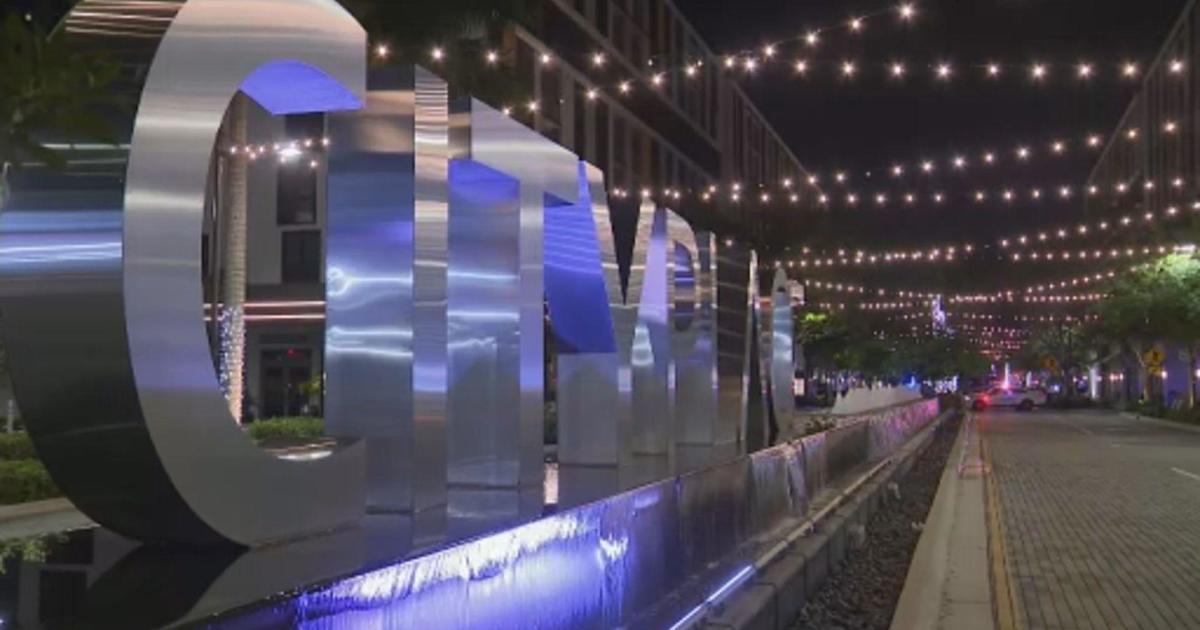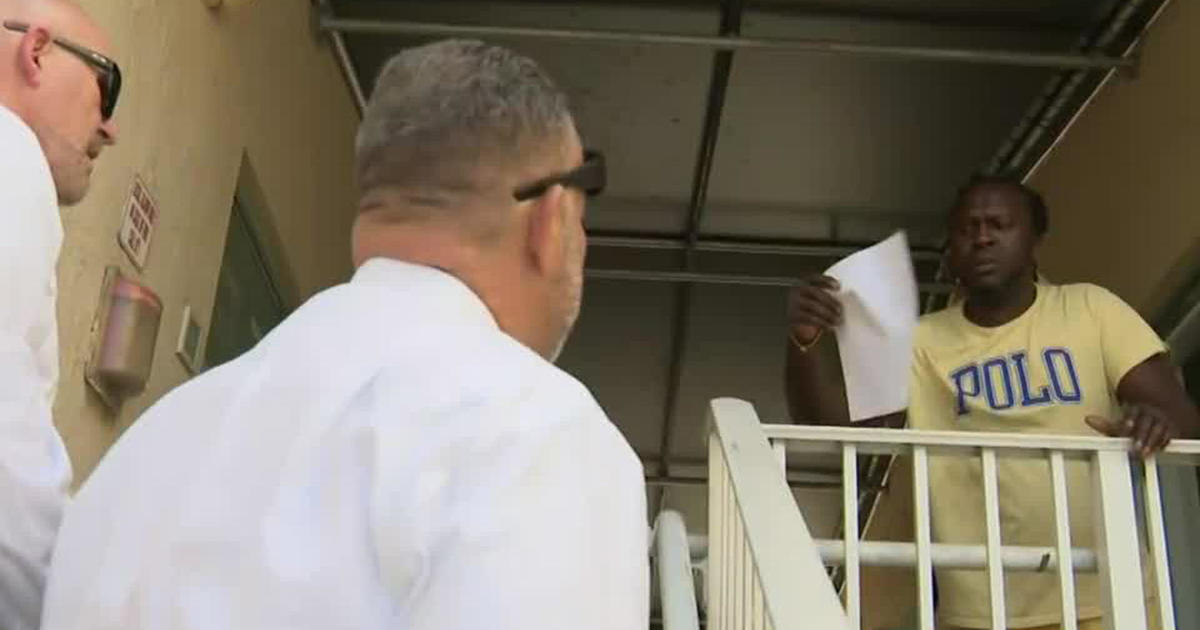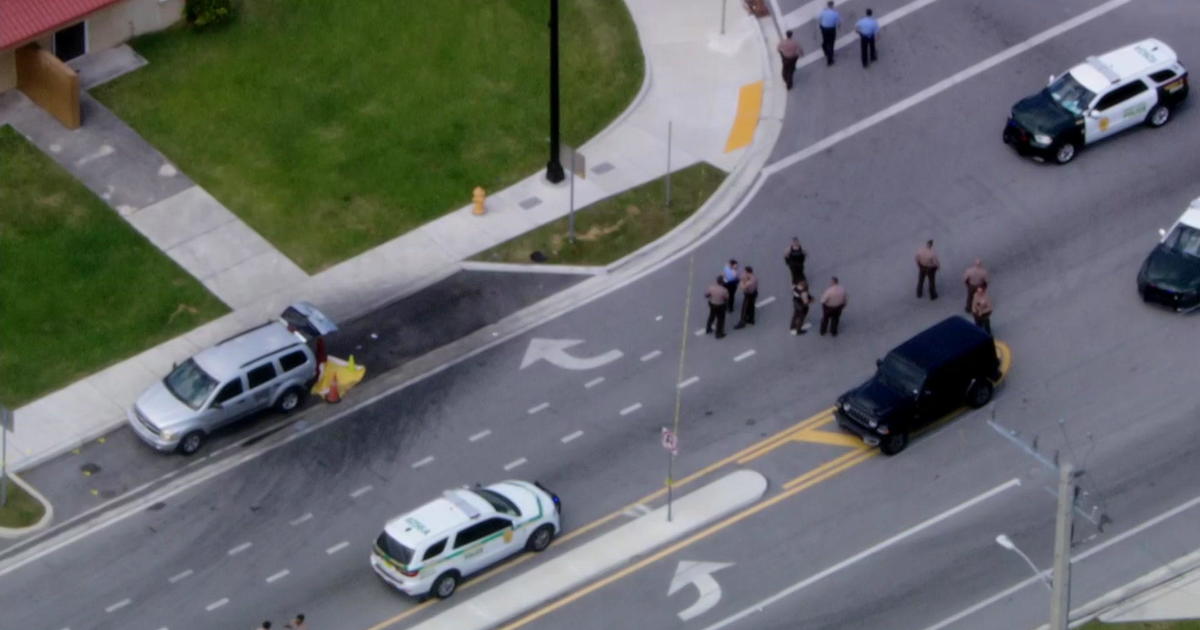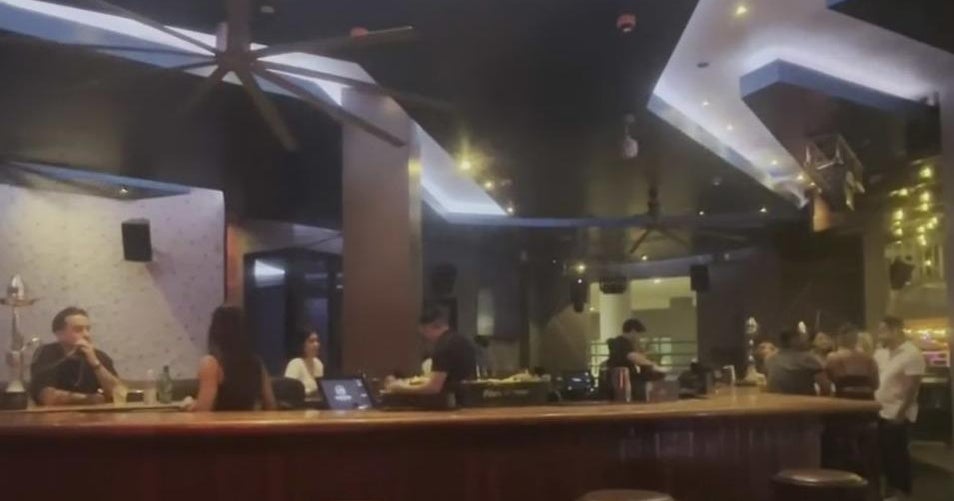Cops Seize Cell Phone Shooting Video After Police-Involved Shooting
MIAMI (CBS4) - In a West Miami-Dade apartment complex parking lot Tuesday, Miami-Dade Police detectives killed 47-year-old Alexis Suarez in a hail of gunfire as he pulled into park. They wanted to question him about an assault he allegedly committed at Miami International Airport, where he worked as a security guard.
Suarez's stepdaughter, Lilliana Marti, had to use a borrowed cell phone to let friends and relatives know of the fatal shooting. Police had seized her cell phone after she used it to record them in the moments after the shooting.
Marti said she ran from the apartment with her cell phone immediately after hearing the barrage of gunfire. She dialed 911, then started shooting video.
"I was able to film some of it with my phone, but they took it away," Marti said Tuesday night. "I filmed the three policemen [still] aiming at my stepdad's car."
When one of the detectives spotted Marti shooting video with her cell, she says he pursued her into the family's apartment.
"A detective saw me with the phone, and he grabbed it down, and told me I was not allowed to film, and he took it away," she said.
An attorney representing the dead man's family said police forcibly took the phone from the young woman.
The American Civil Liberties Union of Florida said Friday that detectives violated the law in entering the home - where no crime was suspected of being committed - and by seizing Marti's cell phone.
"Photography is not a crime," said Howard Simon, Executive Director of the ACLU. "It is perfectly within people's rights to take pictures of what officers are doing out on the street, and certainly when they enter your own home."
Just this week, the United States Supreme Court refused to overturn a lower court ruling that police have no right to seize a citizen's cell phone or camera without a warrant. The case law was established by the U.S. Seventh Circuit Court of Appeals in May of this year.
The ruling, supported by the Supreme Court, follows incidents such as one on Miami Beach when police seized cell phones from citizens who had video-taped officers firing some 100 rounds into a car on Urban Beach Weekend 2011, killing a man. An officer confiscated one bystander's cell phone at gunpoint.
A spokesperson for the Miami-Dade Police Department Friday declined to comment on why detectives entered the dead man's home Tuesday, even though the shooting occurred in the parking lot and the alleged assault he committed earlier was at the airport. The spokesperson said police got a signed release from the stepdaughter, acknowledging that they had her cell phone and would return it to her.
The family's attorney, Nelson Rodriguez Valera, said the young woman was frightened, that her stepfather had just been shot and killed by police, and she felt she had no choice but to sign the form put in front of her. Rodriguez Valera noted that cops grabbed the phone before any mention was made of consent being needed.
The ACLU's Simon was cynical of police motives.
"They saw her, the stepdaughter, taking pictures. They seized the phone because they thought it might contain evidence of misconduct of police," Simon said. "This certainly has the smell of suspicion."
As for the shooting, a Miami-Dade Police spokesperson said the detectives fired at Suarez - who was licensed to carry a gun - after he raised it at them.
The family's attorney said a lawsuit may be in the making, if it can be shown that the cops - in street clothes - failed to properly identify themselves as police officers.



